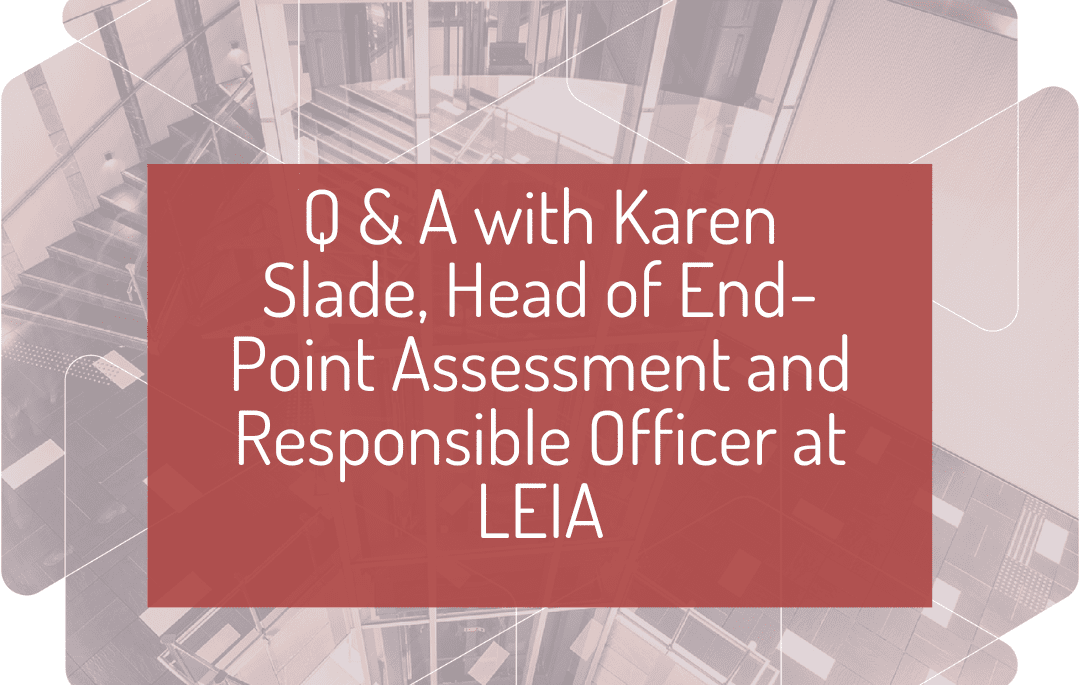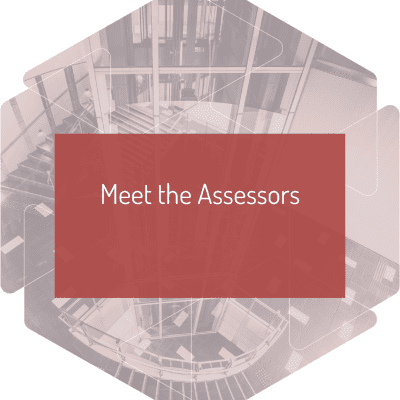Karen Slade, LEIA’s Head of End-Point Assessment and Responsible Officer tells us more about herself, and what to expect from LEIA Assessment.
1. Tell us about your role, what does it involve?
As an experienced Head of EPA, my role is to ensure that LEIA develops assessments which are in line with the assessment plan for the standards we offer, but are also fit for purpose and provide a robust but meaningful EPA experience for apprentices. As the Responsible Officer for LEIA Assessment, I am also responsible for ensuring compliance Ofquals’ requirements.
2. What is your background? How long have you been involved with apprenticeships?
I started working in apprenticeship delivery 13 years ago, as a Trainer/Assessor for the largest hospitality training provider in England.
I moved on to spend four years with a regional public sector training provider and End-Point Assessment Organisation designing training courses, managing large portfolios of learners to support them through their qualifications and managing all external quality assurance activity with three awarding organisations.
I then set-up and managed a micro-End-Point Assessment Organisation for an Awarding Organisation within the waste sector for three years. I have always been passionate about life-long learning, especially apprenticeships which provide pathways for those who don’t want to go to college or university, or for those who want to have a career switch slightly later in life.
3. Why has LEIA become an End-Point Assessment organisation? Why is it important for the industry?
LEIA is first and foremost a trade association which is member-led and works for the sector. With the introduction of Employer-led Apprenticeships, it was the natural progression that LEIA would want to offer EPA for our sector. Lift and escalator installation, and every other type of equipment the sector works with, is a specialised area and requires EPA to be carried out by those who know the job best. LEIA strives to improve safety in the sector and is an advocate for education and training, so there is no one better placed to carry out EPA on new entrants.
4. Why should employers consider apprenticeships, particularly within the lift and escalator industry?
Apprenticeships are great ways to bring new talent into the sector plus really invest in someone’s future. The purpose of an apprenticeship is to train and equip people for success in life. Employers will need to want to invest in people, not just their business, as often there are elements of apprenticeships that a business may not offer on a day-to-day basis but that the apprentice may require in a subsequent job if they are not retained after the initial apprenticeship period. Being part of something bigger is what all employers should strive for and be proud to be part of. Apprenticeships are not just for school and college leavers though, they can be for those who are making a career move later in life, such as those leaving the armed forces. Apprentices, no matter what their age, contribute to businesses by bringing in fresh perspectives or experiences they may have gained in a previous career.
5. How has Covid-19 impacted the delivery and assessment of apprenticeships? Are there changes employers should be aware of?
Covid-19 hit just as the apprenticeship standards were really getting into their stride and it completely immobilised the delivery of training and EPA temporarily. From this though came a unified drive to keep apprentices on track and enable them to complete their apprenticeships. Several flexibilities were introduced to facilitate this and some of them have been so positive that the Institute of Apprenticeships and Technical Education (IfATE) has decided to retain them.
What this means in practice is that where the retained flexibilities remain, they will override whatever is written in the assessment plan. Examples of this could be conducting an assessment using remote technology where possible. Some of these flexibilities may feel unfamiliar or awkward to some employers, or apprentices, but they do yield excellent results and increase efficiency for everyone. LEIA will consider all assessments and related flexibilities on a case-by-case basis so that the needs of the apprentices are met fully. Although we are learning to live with Covid-19, it is fair to say that we still all need to be mindful and manage EPA accordingly to strike the right balance.
6. What does the End-Point Assessment service involve? How are apprentices assessed?
LEIA as the EPAO will appoint an independent assessor who will conduct the pre-determined assessments against the assessment criteria. All apprentices will be assessed in the same manner to ensure a fair assessment for all. LEIA will provide sample assessment materials where possible to aid in the preparation for the assessments.
7. How can employers work with LEIA EPAO?
The LEIA Assessment microsite will launch at the beginning of April where further information can be found on the EPA service and what we offer. We will conduct an initial consultation to determine the needs of the employer and progress from there. We will require all employers to sign an agreement before we release any documentation or can progress our professional relationship.



